Framed in a one-shot: The emotional chaos of 'Adolescence'
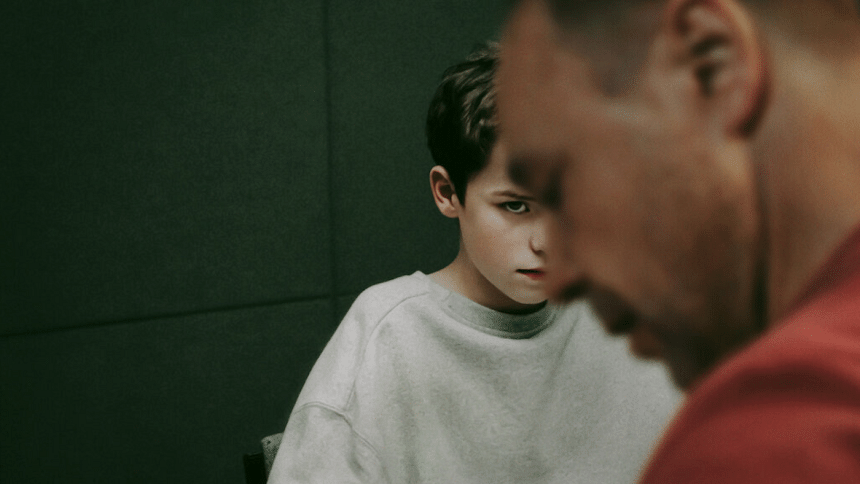
"Adolescence", the Netflix miniseries created by Jack Thorne and directed by Philip Barantini, is an emotionally charged and deeply unsettling drama that tackles complex themes surrounding masculinity, identity, and societal failure. It presents a raw and unflinching look at the pressures faced by contemporary youth, particularly boys, and examines how these pressures can lead to radicalisation and violence. With a narrative rooted in realism, the show takes a refreshing, albeit harrowing, approach to storytelling, steering away from the expected tropes of crime dramas and police procedurals. It is a series that captivates not through high-stakes thrills but through its careful, painful exploration of human emotion and the systems that shape us.
The limited series follows the story of Jamie Miller, a 13-year-old boy from Yorkshire, who is arrested for the murder of his schoolmate, a girl fatally stabbed the night before. The premise sets up an immediate question of guilt or innocence, then it quickly shifts the focus away from the question to explore the much deeper, more uncomfortable territory of why a boy like Jamie, seemingly ordinary and confident, could end up accused of such a heinous act. The narrative eventually draws viewers into the emotional world of Jamie's father, Eddie, whose life is split between before and after the knock on their door which changes everything. The tension and heartbreaks are palpable as Eddie grapples with the unfathomable reality that his son, whom he believes in unequivocally, might be capable of such violence.
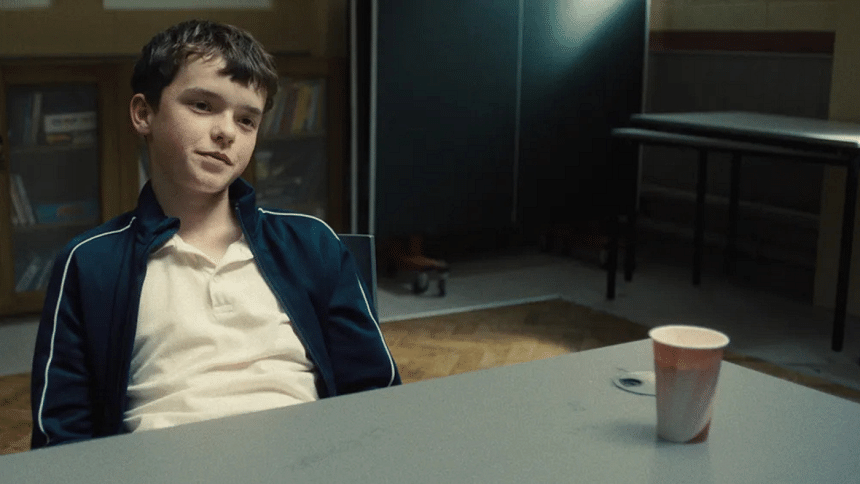
The show's structure is as unique as its subject matter. Each of the four episodes is filmed in a continuous shot. This stylistic choice amplifies the emotional intensity and places the viewer directly inside the harrowing moments experienced by the characters. The decision to eschew flashbacks, time cuts, and conventional narrative devices forces the audience to sit with the characters as they navigate their lives in real-time. This one-take format is not a gimmick but an integral part of the storytelling, as it allows the tension to build slowly, layer after layer while forcing the audience into a space of urgent discomfort that mirrors the characters' emotional turmoil.
The first episode introduces us to Jamie's arrest, and the audience is thrust into the gritty, almost clinical process of dealing with a minor accused of a serious crime. This episode presents the mechanics of the justice system with chilling accuracy—the mug shots, the strip search, and the invasive questions—before moving into the emotional crux of the show: the heartbreak and confusion shared by Jamie's family, but mostly his father. Eddie, played by the incomparable Stephen Graham, embodies a father's deep, primal love for his son. His instinct is to protect Jamie at all costs and to believe him despite all evidence pointing in the other direction. The dynamic between Eddie and Jamie is heartbreaking—one of trust, vulnerability, and a desperate, almost irrational desire for the truth to be something more palatable, something that doesn't shatter the very fabric of their relationship.
Stephen Graham's portrayal of Eddie is nothing short of a masterclass. Known for his ability to bring profound emotional depth to his roles, Graham delivers a performance that is both subtle and devastating. He conveys the heartbreak of a father coming to terms with the possibility that he does not know his son, that the boy he raised may have become someone unrecognisable. Graham's portrayal is especially striking in moments of wordlessness — when he walks through a DIY store, seemingly lost in thought, or when his face betrays the weight of grief and helplessness. He doesn't need to speak for us to feel the crushing weight of his realisation that his son might be guilty, or that, perhaps, he was never fully conscious of what Jamie was becoming.
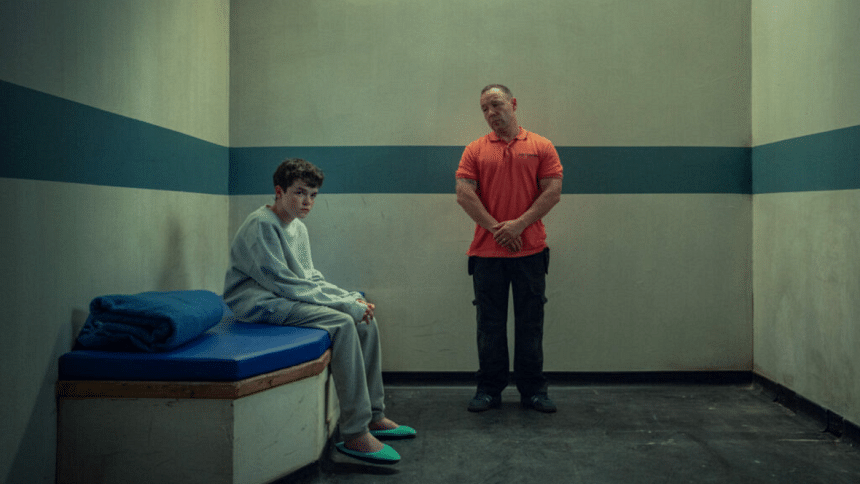
What makes "Adolescence" stand out is its refusal to give simple answers. The show does not indulge in the typical whodunnit structure. There are no clear-cut moments of resolution or revelation. Instead, it probes deeper into the forces that shape boys like Jamie—forces that are largely unseen and often overlooked. In a world dominated by social media, bullying has taken on a more insidious form by becoming something inescapable. Jamie's descent into violence is framed not as the result of a singular, defining event but as the culmination of numerous small, unnoticed moments that build up over time. The show paints a chilling portrait of how easily an innocent boy can be swayed, shaped, and distorted by the pressures surrounding him.
Through the eyes of Eddie, the show also explores the failure of society to intervene in the lives of vulnerable boys. Eddie's journey is one of realisation, as he confronts the uncomfortable truth that he may have missed the signs of his son's emotional and psychological unravelling. As Jamie's behavior becomes more erratic, and his anger boils to the surface, Eddie is left questioning his own role in shaping the boy his son becomes. In this way, "Adolescence" becomes not just a commentary on the boy's experience but also a critique of societal structures that fail to protect children before they fall through the cracks.
The performances across the board are exceptional, particularly from newcomer Owen Cooper, who plays Jamie. At just 14 when filming, Cooper delivers an astonishing performance that belies his age. Jamie is a complex character—vulnerable yet defiant, angry yet keen on trying to understand. Cooper navigates these contradictions with remarkable precision, capturing the full range of emotions that make Jamie such a compelling and tragic figure. It is impossible not to sympathise with Jamie, even as his actions grow more difficult to comprehend. Cooper's portrayal reveals the boy behind the anger and violence—one still clinging to childhood innocence while simultaneously being shaped into something darker by a society that fails to nurture him.
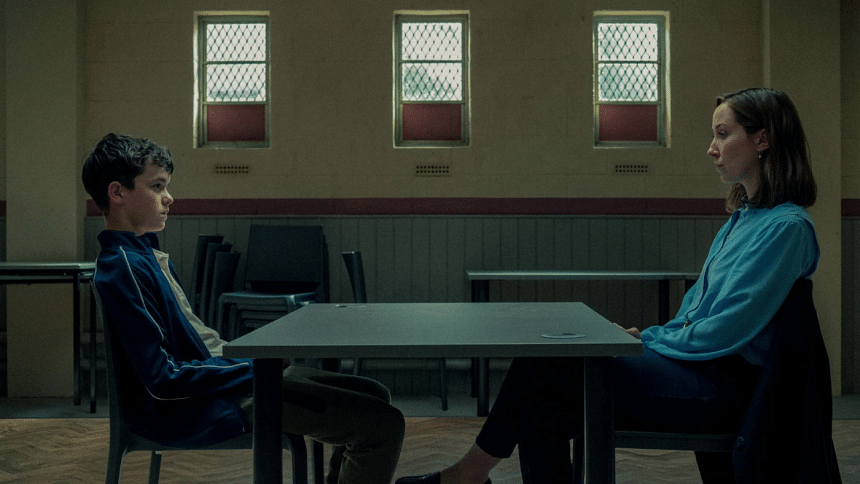
Erin Doherty, as the psychologist tasked with understanding Jamie, provides a performance that is sharp and unsettling. Her scenes with Cooper, particularly in the third episode, are some of the most emotionally fraught moments of the series. In their extended exchanges, the show delves into the psychological terrain of anger and power. It moreover explores the insidious way that resentment can grow into something irreversible. Doherty's portrayal is precise, calculated, and chillingly clinical, offering an intellectual counterpoint to the emotional chaos of the other characters.
"Adolescence" is also remarkable for its exploration of masculinity. The show addresses the pressures placed on young boys to conform to a rigid, toxic version of manhood. Social media, bullying, and the glorification of violence become key factors in Jamie's radicalisation, but so too does the silence surrounding the emotional struggles of boys. The show's approach is not to demonise masculinity but to highlight the harm caused by the lack of spaces for boys to express vulnerability, anger, and fear without the threat of being labelled weak or feminine. The quiet and patriarchally uniform ways in which boys are taught to bury their emotions, often until they explode, are brought to the forefront in a way that feels both urgent and necessary.
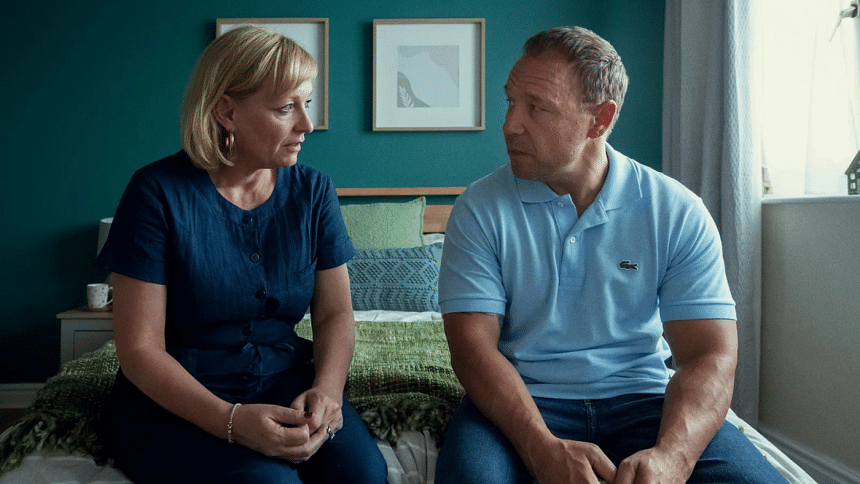
By the time we reach the final episode, we are left with a profound sense of unease. There are no easy answers, no neat resolutions. The show does not offer a clear moral takeaway, nor does it indulge in simplistic commentary about the rise of toxic subcultures or the dangers of the internet. Instead, it leaves us with uncomfortable truths about the pressures placed on boys, the failures of the systems meant to protect them, and the devastating consequences when we fail to intervene before it is too late. The final moments linger, as the camera forces us to sit with the characters in the aftermath of the tragedy, leaving us with the haunting realisation that the world we live in is not as safe or as simple as we would like it to be. "Adolescence" is a masterclass in storytelling, a searing social commentary, and a brutal yet beautiful exploration of youth, masculinity, and societal failure. It is a show that demands to be seen, not because it provides answers, but because it forces us to confront the difficult questions that we so often overlook.

 For all latest news, follow The Daily Star's Google News channel.
For all latest news, follow The Daily Star's Google News channel. 


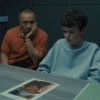






Comments